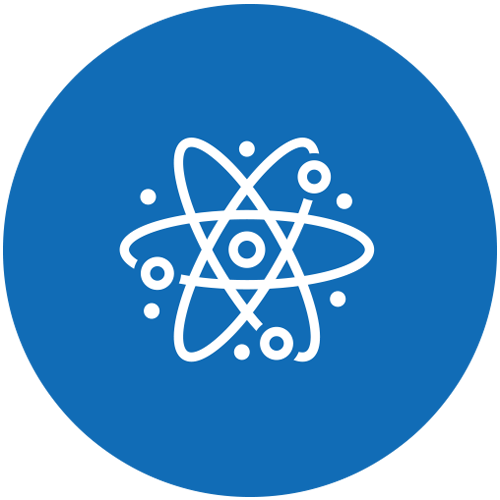LCCC Catalog 2025-2026
Artificial Intelligence, AAS
Location(s):
Hyflex
|
|
 Return to: Programs by Pathway Return to: Programs by Pathway
 The Associate in Applied Science (AAS) in Artificial Intelligence and Machine Learning focuses on building machine learning models that can be used for predicting, making decisions and enhancing human capabilities. The program prepares students for entry level positions in a variety of fields using artificial intelligence, including the information technology, automotive, healthcare, aerospace, industrial, and manufacturing industries. Program content includes an introduction to artificial intelligence and machine learning, natural language processing, computer vision, and artificial intelligence for business solutions and other applications. The curriculum also includes coursework in computer programming, math, engineering, and statistics. The competencies of TREX 2000 are embedded into this program to ensure students benefit from and complete the requirements of the Transition Experience prior to graduating from LCCC. The Associate in Applied Science (AAS) in Artificial Intelligence and Machine Learning focuses on building machine learning models that can be used for predicting, making decisions and enhancing human capabilities. The program prepares students for entry level positions in a variety of fields using artificial intelligence, including the information technology, automotive, healthcare, aerospace, industrial, and manufacturing industries. Program content includes an introduction to artificial intelligence and machine learning, natural language processing, computer vision, and artificial intelligence for business solutions and other applications. The curriculum also includes coursework in computer programming, math, engineering, and statistics. The competencies of TREX 2000 are embedded into this program to ensure students benefit from and complete the requirements of the Transition Experience prior to graduating from LCCC.
Contact Information
Contact information is available on the Artificial Intelligence website.
Map your individual academic plan of courses with your Student Success Coach.
If students choose to transition to another program within the STEM pathway, they should be particularly aware of the choice points that indicate when a decision to branch off into another program must be made to ensure credits and time are not lost.
Coursework common to all degrees within this pathway is indicated by CAC, Common Academic Coursework, in the program map.
|
Competencies
Upon successful completion of this program, students will be able to: - Evaluate business problems using common artificial intelligence (AI) concepts and methodologies, including neural networks/Deep Learning, machine learning, Natural Language Processing, Computer Vision, for analysis and decision making.
- Solve social and business issues by applying artificial intelligence (AI) project development principles and appropriate machine learning cycles.
- Evaluate usefulness of artificial intelligence (AI) programming solutions with statistical analysis and machine learning algorithms.
- Create artificial intelligence solutions using appropriate programming languages.
- Communicate in varied settings, orally and visually and in writing, in a culturally responsive manner.
- Create artificial intelligence using machine learning solutions/principles.
- Collaborate with diverse individuals and teams.
- Evaluate issues of bias, culture, environment, ethics, regulations, and professional expectations in the field of artificial intelligence (AI) and machine learning.
Milestones
- Students are introduced to AI concepts.
Semester Total: 17 Credits
Choice Points
- Students interested in understanding the mathmatical foundations of AI should take MATH 1400 .
- See Program Comments below regarding Math course options if students place higher than MATH 1400 .
- Students interested in applied AI software development should take COSC 2409 .
Semester Total: 15 Credits
Semester Total: 3 Credits
Choice Points
- Students interested in understanding the mathmatical foundations of AI should take MATH 2200 .
- Students interested in applied AI software development should take COSC 1030 .
Milestones
- Students will have the fundamental tools to apply and build AI products.
Semester Total: 13 Credits
Choice Points
- Students interested in understanding the mathmatical foundations of AI should take MATH 2250 .
- Students interested in applied AI software development should take COSC 2030 .
Milestones
- Completion of Artificial Intelligence, AAS.
Semester Total: 15-16 Credits
Program Credit Hour Total: 63-64 Credits
Program CommentsThe information below is intended to be a guide, and does not guarantee regional job placement, job availability, or a specific wage after completion of the program. The AI program offers two focused tracks designed to get students job-ready faster: Mathematics and Computer Science. These specializations equip students with the in-demand skills for entry-level positions in the booming AI field. Mathematics for AI: - Develop strong problem-solving skills and logical thinking
- Build a solid foundation in mathematical concepts, including linear algebra and calculus
- Prepare for careers in AI, data science, and related fields, with a deep understanding of mathematical principles
Computer Science for AI: - Gain programming skills in Python and C++
- Develop problem-solving skills and logical thinking
- Prepare for entry-level positions in software development, data analysis, and IT
Both tracks will equip students with a solid foundation in AI, but the chosen specialization will provide a sharper edge for entry-level positions in today’s AI job market. Possible careers related to AI with a mathmatical foundtion include AI/ML Technician, Data Analyst, Business Intelligence Analyst, Operations Research Assistant, and Statistical Technician. Possible careers related to AI with a computer science foundation include Junior AI/ML Engineer, Data Science Analyst, AI/ML Data Analyst, Natural Language Processing (NLP) Technician, and Computer Vision Technician. Additional information on careers in Artificial Intelligence is available through Career Coach. Transfer InformationThis degree is well suited for those who may be interested in pursuing a Bachelor of Applied Science degree at Laramie County Community College. LCCC courses may transfer to institutions in addition to those above with formal articulation agreements. Students are strongly encouraged to determine the degree requirements and transfer policy of the specific college/university and program to which they plan to transfer. |
 Return to: Programs by Pathway Return to: Programs by Pathway
|
|
|